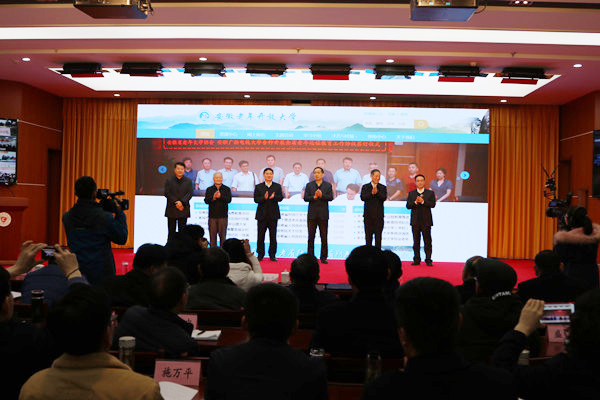 On 12 December, 2018, a conference to promote distance education and launch a distance-education platform for elderly residents of Anhui was held in Hefei.
On 12 December, 2018, a conference to promote distance education and launch a distance-education platform for elderly residents of Anhui was held in Hefei.
Li Heping, vice chair of the Anhui Provincial Political Consultative Conference and Director of the Anhui Department of Education; Chen Xiansen, chair of the Association of Universities for Older Adults in Anhui province; Yu Gongqing, honorary director of the Distance Education Committee of the China Association of Universities for Older Adults; Luo Changping, vice chair of the Association of Universities for Older Adults in Anhui province; Xie Ping, member of the Education Work Committee of the Anhui Provincial Party Committee of the CPC, as well as deputy director of the Anhui Department of Education; Zheng Hanhua, Party secretary and president of Anhui RTVU; Anhui RTVU vice Party secretary Fan Jialu, vice president Du Aiyu, and secretary of the Discipline Commission Wang Daohe, all attended the meeting.
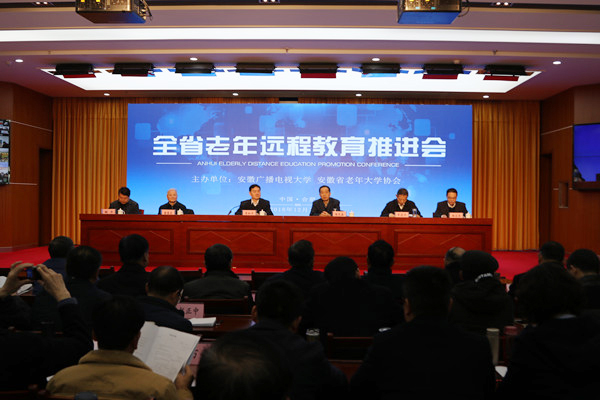
Li Heping, Chen Xiansen, Yu Gongqing, Luo Changping, Jie Ping and Zheng Hanhua jointly launched the distance-education platform for older adults in Anhui.

Li Heping pointed out in his speech that we should focus on expanding and enhancing, through integration of resources and modernisation, education for older adults with the goal of improving their quality of life. He stressed that cooperation between the Anhui Association of Universities for Older Adults and Anhui RTVU would give the education of older adults in Anhui broader scope, flexibility, diversity, and other advantages by 2020.
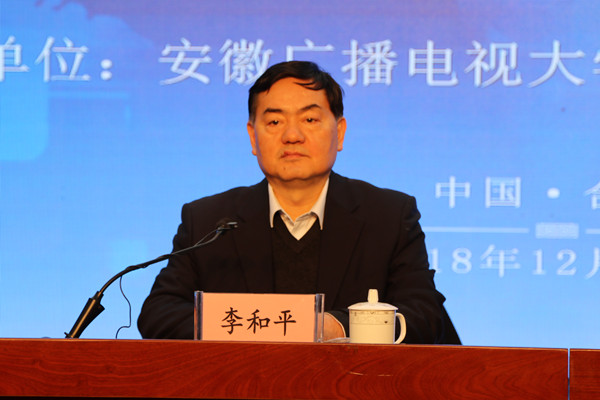
He demanded that we acknowledge the importance of education for older adults, clarify our goals, and seek new models for its development in Anhui Province; give full play to our advantages, plan systematically, and jointly promote the development of long-distance education for older adults; integrate resources, set up municipal open universities and county colleges to provide older adults with distance-learning support, and expand networks into rural areas. We should work on platform construction, using the learning platform of the Anhui Open University for Older Adults, promoting the use of information technology, and advancing the integration of online and offline teaching. We should also work on resource construction, establish a digital-resource bank, expand access to resources via new media and access for rural residents, and integrate resources related to culture, sports and science and technology. Innovation should be encouraged in relation to online and offline access and other forms of education, including support groups and online learning circles. Finally, diversity and other advantages should be explored in the construction of teaching teams.
Chen Xiansen pointed out that we should accept the guidance of Party committees and the government in relation to the education of older adults and modernisation of education; use network platforms to develop distance education for older adults; and ensure that the Association of Universities for Older Adults and RTVUs work together to promote it. Any older person should be able to take part, and expansion of spaces and innovation in content should be encouraged.
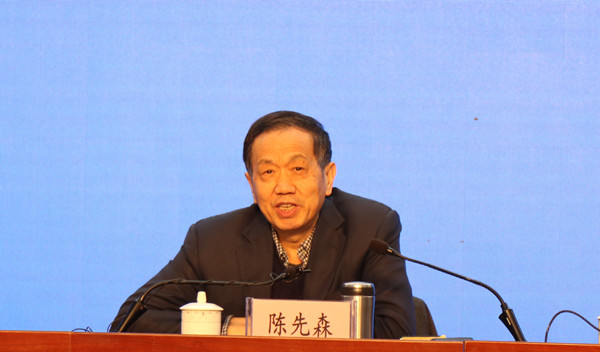
Yu Gongqing gave a special report on "Innovation in Thought and Action: the Development of Distance Education for Older Adults".
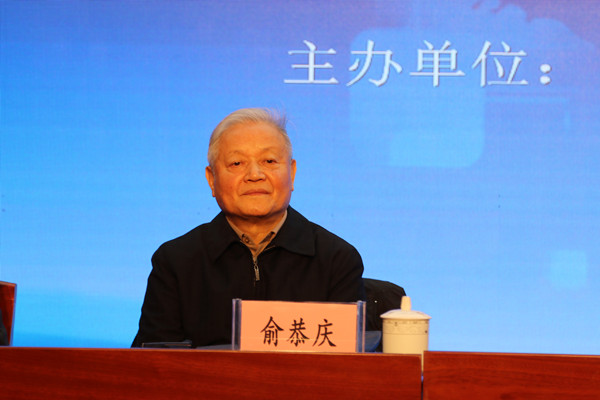
Zheng Hanhua said that the university will promote long-distance continuing education for older adults in Anhui as part of a broader process of enhancing open continuing education there.
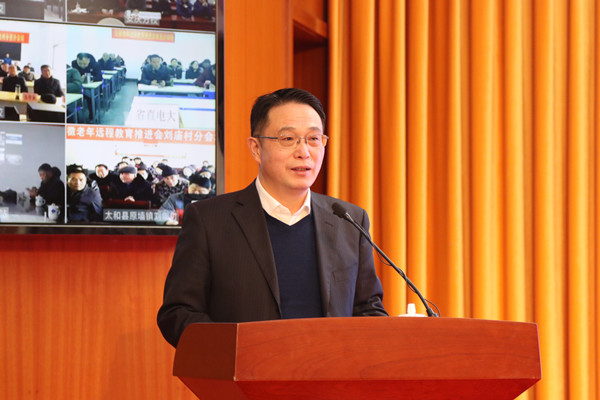
Group discussions were also held at the meeting.
Meeting participants included leaders from the China Association of Universities for Older Adults, the Anhui Department of Education, the Anhui Association of Universities for Older Adults, municipal education committees and universities for older adults, the National Older-adult Distance-education Experimental and Demonstration Areas, and branches of Anhui RTVU.
The aging of the population is a serious problem in Anhui Province. By the end of 2017, over 11 million of its residents were 60 or older, more than 16% of the total population, and over 8.5 million of these were over 65 (more than 12%). The problem is expected to grow, and by 2020 more than 20% of older adults are expected to take part in some form of educational activity, placing a severe strain on resources.
By Anhui RTVU